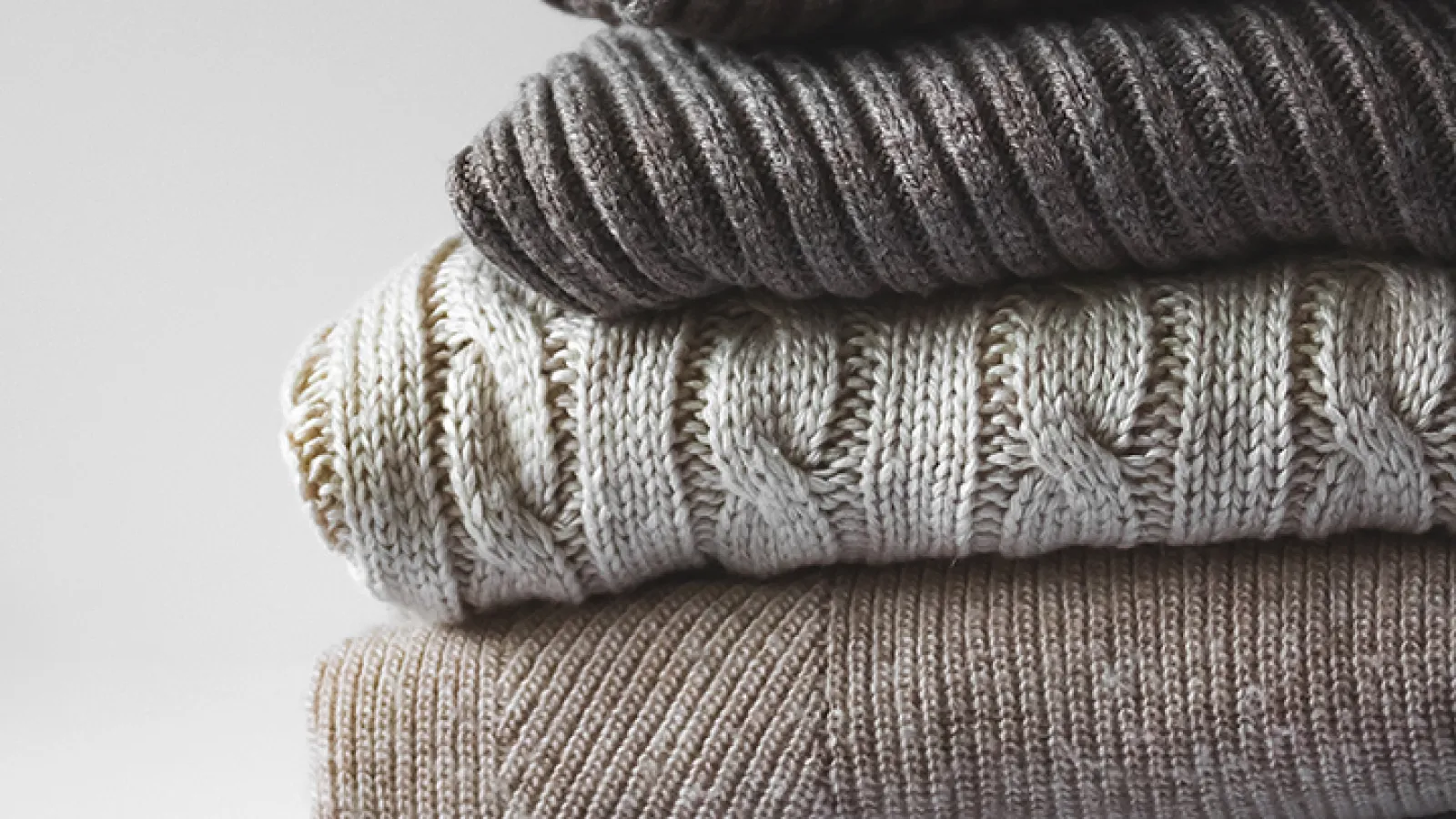As the styles of sweaters change, so do the fibers of this wardrobe staple. Sweaters are made from a variety of fibers, ranging from cotton and wool to silk, rayon, acrylic and more. Natural fibers, such as angora, mohair, cashmere, and Shetland are especially popular. To add to the variety many sweaters contain special decorative trims. Trims such as suede, leather, snakeskin, fur, sequins, and beads add to a sweater’s special look. Caring for these delicate knits requires special attention.
Purchasing Tips
Before purchasing a sweater, check to see if it will withstand your lifestyle. If you’re an active person or plan on wearing it to dance parties, go for a harder, tighter yarn. Soft, loose yarns tend to stretch easily and are meant for less active wear.
- Check the seams of knitted sweaters for unraveling and fraying, which may occur if the edges not bound properly.
- If the sweater you wish to buy has trim on it, ask the retailer about their return policy.
- Many times the fabric will hold up to the rigors of life in general, but the trim is most often the weakest part.
Follow your sweater’s care label instructions closely to prevent shrinkage and stretching. Many sweaters are hand-wash only. In these cases, it is most often best to lay them flat to dry, unless the label says it’s safe to tumble-dry the sweater at low heat. Some sweaters are gentle-cycle washable and others may require drycleaning. Avoid using alkaline-based detergents on woolens and other animal fibers.
- If you have any doubts about care procedures, discuss it with your professional cleaner.
- Tumble dry at low temperatures, if recommended on the care label. Otherwise, lay flat to dry.
- Keep sweaters clean. Treat stains right away. When spills are blotted immediately and professionally removed, stains won’t develop later.
- Make a pattern of knit sweaters before washing by tracing their outline on a piece of brown or kraft paper. This will allow the sweater to be blocked back to its original size.
- Brush sweaters after each wearing. This revives the nap, if there is one, and frees the garment of surface soil.
- If wool sweaters get wet, let them dry at room temperature away from heat, then brush with the nap.
- Check knitted sweaters for unraveling and fraying, and secure any loose yarns so the sweater can withstand normal use and care procedures without further unraveling.
- Place folded sweaters over padded hangers in a well-ventilated closet or place in drawers. Do not hang sweaters from the shoulders; the weight of the sweater can cause it to stretch. Be sure to empty pockets, remove belts, and close zippers.
- Remember that delicate items require special handling.
Cleaning Problems
Different fabrics can present different challenges to cleaning sweaters. Professional cleaners are well versed in all the various styles and fibers. In most cases your cleaner will get the job done with a minimum amount of fuss on your part.
However, sweaters and knit garments, depending on their fiber type, are susceptible to various problems, including stretching, shrinkage, pulls, and pilling, both from use and cleaning.
Some stretching on knit items should be expected as a normal circumstance of wear and care. Generally, the softer the knit, the more likely it is to show some change in texture or feel with normal wear, and this may be aggravated with washing or cleaning procedures.
If you have any questions about caring for your sweaters consult your professional cleaner.
Courtesy of DryCleaning and Laundry Institute International

